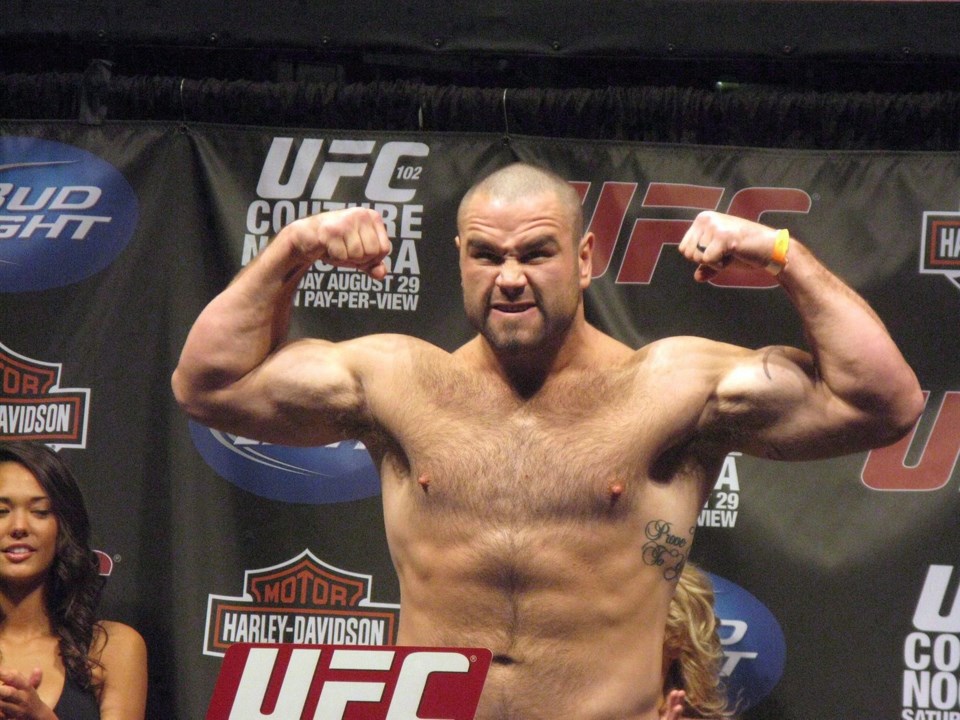EDMONTON — The judge leading a fatality inquiry into the knockout death of a boxer has recommended changes to how the sport is regulated and how head injuries are monitored.
Timothy Hague, a 34-year-old former kindergarten teacher once nicknamed The Thrashing Machine, competed in a boxing match licensed by the Edmonton Combative Sports Commission in June 2017.
His opponent, Adam Braidwood, knocked Hague unconscious in the second round.
The heavyweight fighter came to and was able to walk to the dressing room. He was being looked after by a ringside doctor when he vomited, laid down and lost consciousness again. Paramedics took him to the hospital, where he underwent surgery for a large brain bleed.
His condition didn't improve, care was withdrawn and Hague died two days after the fight.
The inquiry was not meant to find fault but to come up with recommendations that could prevent similar deaths in the future.
Justice Carrie Sharpe with Alberta's provincial court made 14 recommendations in a report published last month, including that combat sports be overseen by a provincial authority instead of a patchwork of municipal bodies.
She also said when a technical knockout is declared, meaning a referee has determined a boxer is too hurt to keep fighting, detailed reasons should be provided, specifically whether there were blows to the head. And if there were head blows, the athlete should provide medical proof, in the form of an MRI or CT scan, that they are fit to compete again.
Regardless of injuries, a boxer should be required to provide CT scans every six months and referees should be provided with mandatory yearly training on head trauma, Sharpe wrote.
The judge also recommended concussion spotters be present at every combat sport event.
"These individuals should be medically trained to recognize the symptoms of a concussion. The concussion spotters should have authority to stop an event," she wrote.
Fighters should be prevented from going back in the ring if there are any signs that they haven't fully recovered from a concussion, she added.
Sharpe also urged mandatory suspensions of 14 days between fights, regardless of outcome, and no less than 90 days in the event of a knockout.
Citing information in a third-party review the City of Edmonton commissioned from consulting firm MNP, Sharpe wrote that Hague was not originally on the fight card for the night of his fatal injury, as the original contestant was removed for medical reasons.
Hague was to earn $3,000 for the fight and $500 more if he won.
One of the MNP consultants was told by Hague's coach and others that he "really wanted to fight," the inquiry report said.
"Mr. Hague's family indicated they were concerned for his safety."
He had fought two months earlier at an event in Lethbridge, Alta., and was suspended by that city's boxing commission due to a technical knockout. That suspension expired 10 days before what would be Hague's final fight.
An autopsy on Hague found evidence of chronic traumatic encephalopathy, which is caused by repetitive brain trauma.
"The more head blows you have and the more concussions you have, the more susceptible you are to have further concussions," Sharpe wrote, summing up evidence from neurologist Dr. Mohammed Hussain, who testified as an expert witness.
"Concussions may have cognitive effects, including impulsivity. Someone may be more impulsive when concussed, so their decision-making ability may be affected."
The City of Edmonton said in a release that it's reviewing the judge's recommendations and it expects to have a response by March.
"We extend our continued condolences to the family and friends of Tim Hague," it said.
This report by The Canadian Press was first published Nov. 5, 2024.
— By Lauren Krugel in Calgary
The Canadian Press




